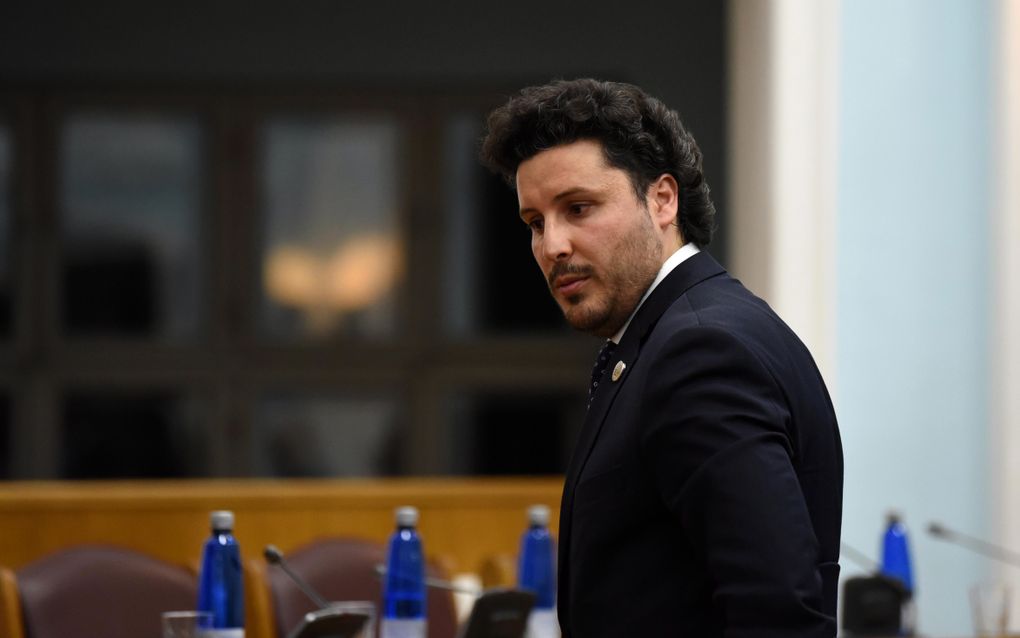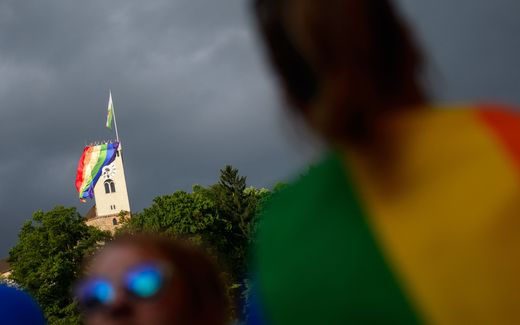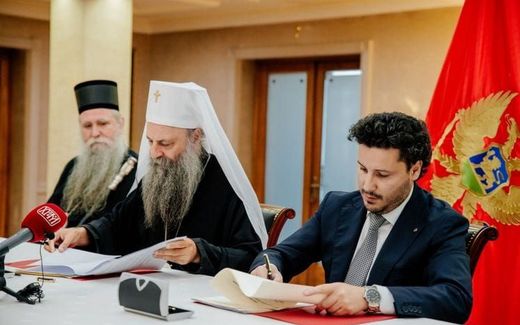Elections in Montenegro seem inevitable after crisis because of church deal

Montenegro's Prime Minister Dritan Abazovic. Photo EPA, Boris Pejovic
Southern Europe
Montenegro might face new elections after a non-confidence vote toppled the government over a deal with the Serbian Orthodox Church. If President Milo Djukanovic fails to appoint a new Prime Minister, new elections are inevitable.
The coalition government collapsed on August 20th after the Montenegrin parliament backed a vote of no-confidence called by the party of President Milo Djukanovic and smaller parties in the ruling coalition, worsening the country’s political instability.
The vote was called after the government of Prime Minister Dritan Abazovic, a 36-year-old Muslim, signed a deal with Patriarch Porfirije of the Serbian Orthodox Church. Because of the sensitivity of the agreement, the time and place of signature had been kept secret until the very end.
Controversial
The agreement reached at the beginning of August regulates the separation of Church and state, the recognition of the Serbian Orthodox Church as a legal entity, and respect for religious buildings so that the police may only enter if the church authorities have given permission. The agreement also regulates religious education in schools. The deal was controversial because critics argued that Montenegro continues to be subject to neighbouring Serbia, from which it gained its independence in 2006 through the Church.
However, Abazovic argues that he signed this agreement “for the citizens of Montenegro, especially the Orthodox Christians among them”. Of the 630,000 Montenegrins, 72 per cent are Serbian Orthodox Christians.
While signing the document, Patriarch Porfirije of the Serbian Orthodox Church said he wanted to respect the Montenegrin constitution. “And we ask no more than any other religious community here in Montenegro”, he added.
But Porfirije might have another interest: the Montenegrin Orthodox Church, which was founded in 1993 and fought the authority of the Serbian Orthodox Church but is not recognised by any other Orthodox Church in the world, has been definitively marginalised by the agreement. This reports Dutch daily Nederlands Dagblad.
Understatement
To say that Montenegro is in a political crisis might be an understatement. In February, Montenegro’s previous government, which took office in 2020 and consisted primarily of pro-Serbian and pro-Russian parties, was overthrown by a vote of no confidence. For some time now, Montenegro has been going through a phase of political instability. Now, President Milo Djukanovic must appoint a new Prime Minister. Otherwise, the country faces fresh elections.
Djukanovic has been a leading figure in Montenegrin politics for over the last 30 years. He led the country to a negotiated independence from Serbia in 2006. However, Djukanovic remains a controversial figure who has been criticised for corruption, links to organised crime and attacks on independent journalists. This reports Al Jazeera. According to Gezim Krasniqi, lecturer in nationalism and political sociology at the University of Edinburgh, one main factor is a growing rift between pro-EU and pro-NATO parties and those backing stronger ties with Serbia and Russia, he says to Al Jazeera.
Related Articles






